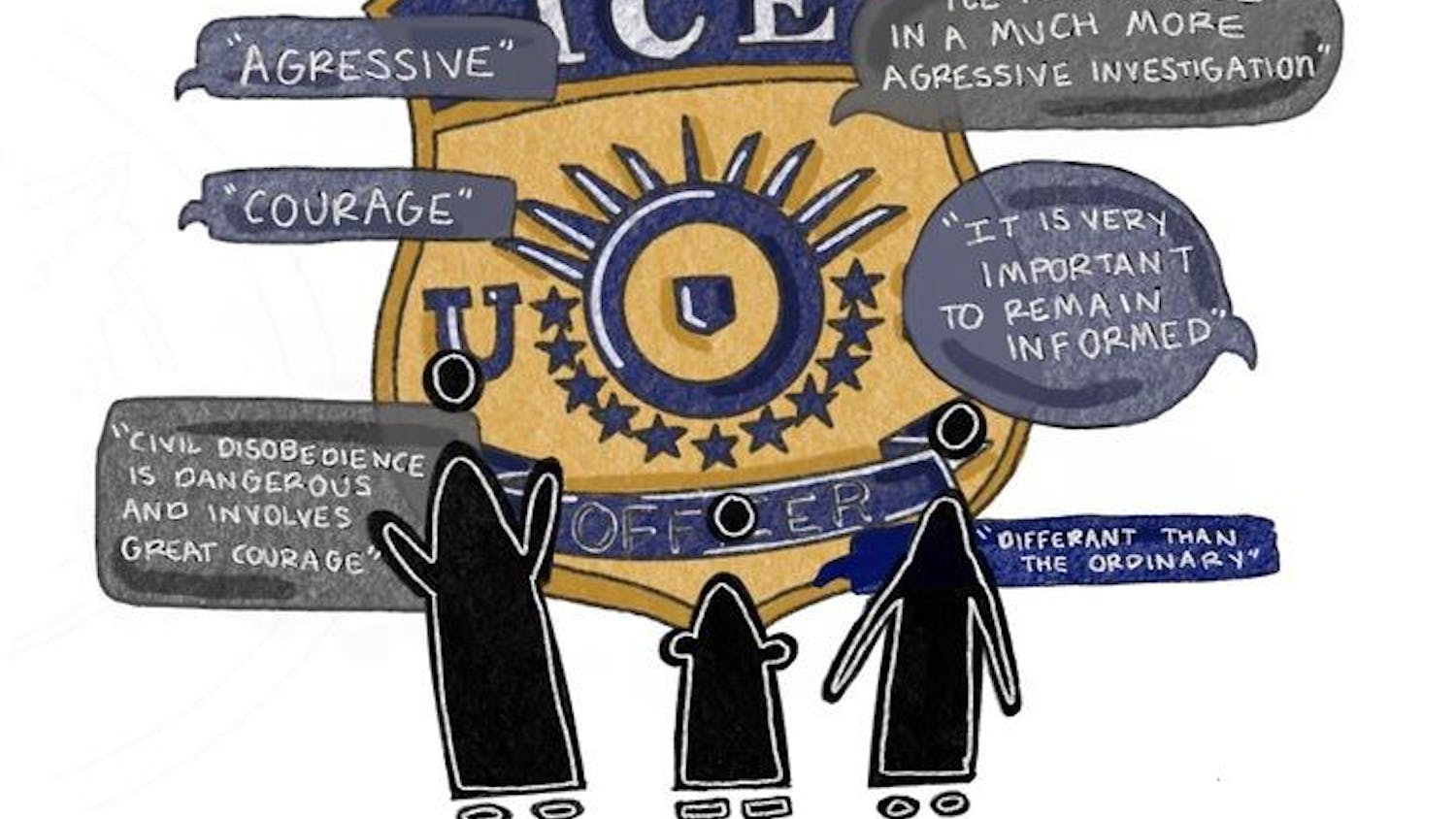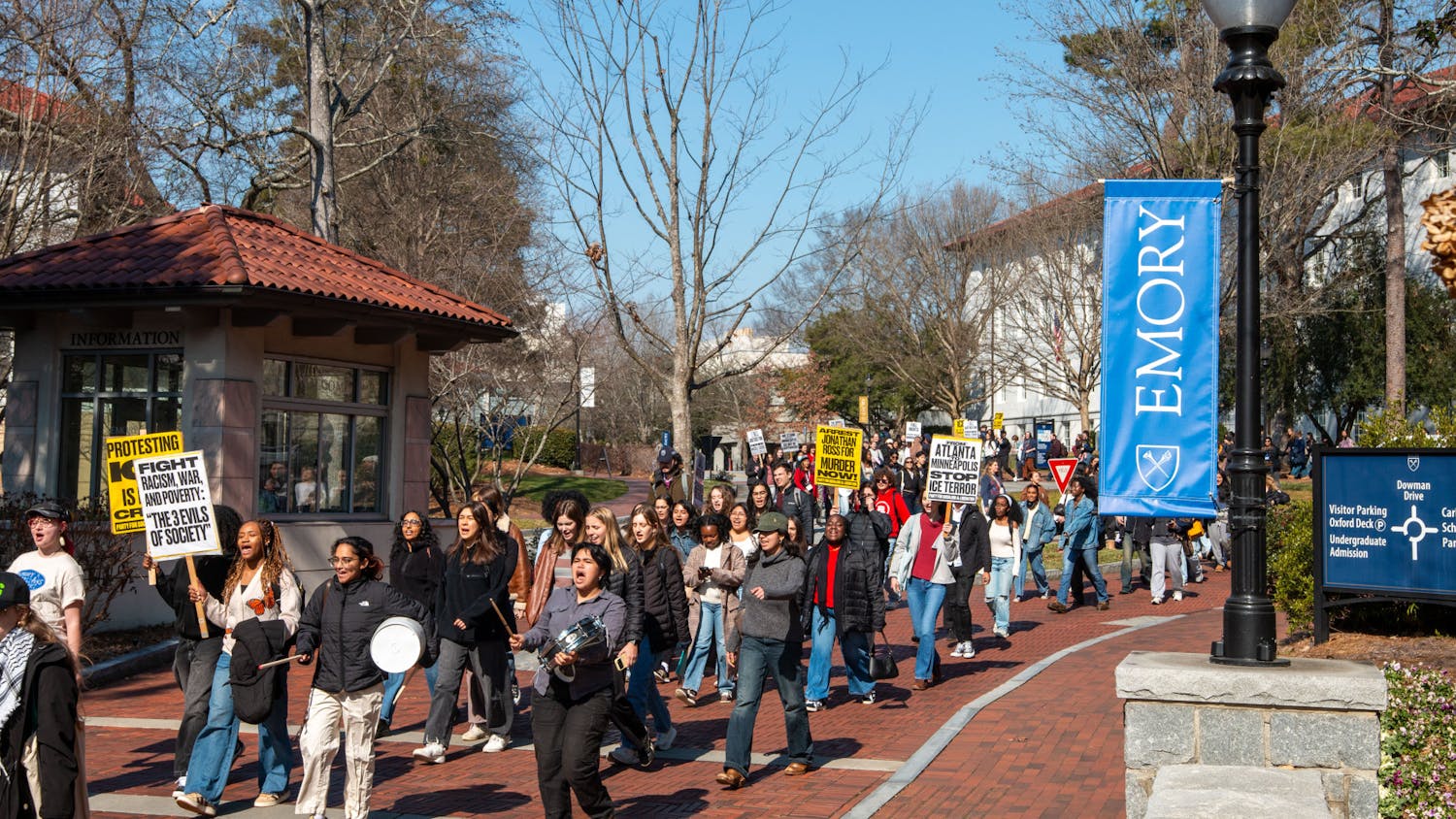The Student Government Association (SGA) Elections Board convened on Tuesday night to hear complaints from former Black Student Alliance (BSA) President Imani Brooks (20C) regarding alleged electoral misconduct in BSA’s Spring 2019 executive board elections.
In an email sent hours prior to the hearing, Elections Board Chair Justin Cohen (20C) told BSA that the Elections Board would oversee the entirety of BSA’s executive board elections in accordance with the Code of Elections, which allows the Board to oversee elections of student groups with large constituencies or a history of election disputes, according to an email from Cohen to BSA President Nicole Gullatt (20C).
According to Cohen, BSA members, Student Involvement, Leadership and Transitions (SILT) advisers and BSA advisers advocated that third-party oversight “would be the best way to ensure a fair elections process.”
“I have coordinated with Vernon Smith, an adviser for BSA in the SILT office, to release flyers with information about the upcoming election, as well as to begin the process of collecting candidate applications,” Cohen said.
Brooks sent a formal complaint to Cohen on April 10 alleging that Gullatt and External Vice President Timothy Richmond (20C) had violated the Elections Code. The hearing was held to determine whether Gullatt and Richmond should face sanctions and whether they should be allowed to run in the election.
Brooks’ complaint alleges that Gullatt and Richmond proposed amendments to BSA’s constitution that would alter eligibility for candidacy, days after some candidates had already submitted their applications. The proposed amendments never reached the general body and did not pass the required executive board vote, according to Richmond and Gullatt.
The changes would not allow applicants who had previously resigned from an executive board position to reapply for the positions of president, internal or external vice president, secretary, or treasurer, unless the individual could demonstrate that the reason for their resignation was an illness or loss of a close friend or family member.
“It was not fair because it would render applicants who have already submitted applications ineligible,” Brooks said.
Former BSA Secretary Kennedy Blackwell-Lewis (21C), who applied to run for the position of external vice president, was one of the candidates who would have been ineligible if the proposed amendments passed because she resigned as secretary in March.
Gullatt and Richmond also proposed amending the BSA constitution to redefine active member status by increasing the number of required organization events from two per semester to at least a 50 percent attendance rate. The proposal was an attempt to promote “quality leadership” within BSA.
On March 18, Gullatt and Richmond brought the amendments to BSA Advisers Malcolm Robinson (15C) and Vernon Smith, who expressed concern over their timing in relation to the upcoming elections. After hearing Robinson’s and Smith’s concerns about the timing of the proposed amendments, Gullatt and Richmond asked College Council (CC) Adviser Sarah Beth Potter about the legality of introducing the amendments. At Tuesday’s Elections Board hearing, Potter testified that she told Gullatt and Richmond that the BSA constitution could be amended at any time, provided that they followed their constitution’s procedures.
“These amendments were proposed suspiciously close to the elections, preventing potential candidates from having the opportunity to meet the requirements, as the programming year was almost over,” Brooks said.
Gullatt, who is running for treasurer, and Richmond, who is running for president, were involved in overseeing the election process even though they were active candidates, according to the complaint. BSA’s constitution states that “No member of the elections committee can participate in the conduction of the election if they are actively nominated and running for an office.”
BSA’s elections for some positions are a two-step process, according to Gullatt. Potential candidates submit their application through OrgSync, which then are approved or denied by the executive board and elections committee for a spot on the ballot. A denial means more information is needed from the applicant or the candidate doesn’t meet the requirements, according to Gullatt.
Gullatt and Richmond denied and approved applications “without bringing them forth to the whole executive board,” according to Brooks’ complaint.
The hearing also concerned BSA Treasurer Adam Ingram’s (21C) alleged mishandling of club funds, failure to complete his position’s responsibilities and overstepping the bounds of his position. According to Gullatt and Richmond, $80 is missing from the club’s expected funds. Ingram denied knowledge about the missing funds.
Cohen stated in an email to the Wheel that the hearing only concerned violations of the Elections Code, however, and potential violations of the SGA finance code would not be considered in its decision.
Gullatt and Richmond argued that Ingram collected dues from members the day before the candidate declaration deadline but did not inform two candidates that they had to pay their dues to run in the election, and then subsequently denied their applications, barring them from executive board review.
“There’s been a lot of things that have been omitted from me. … [Gullatt] overtook my position as treasurer and overstepped her boundaries. … I don’t know what’s missing, I’ve requested receipts,” Ingram said. “This has honestly been one of the worst experiences I’ve had in being on the Executive Board.”
Richmond commented that the investigation has been burdensome and stressed the importance of allowing BSA to resolve its own issues.
“It’s very embarrassing as a black organization to be pitted against each other,” Richmond said. “We should be able to solve our organizational problems and be able to self-govern. … All of these problems could’ve been solved if there was communication.”
SILT Director Lisa Loveall, who presided over the hearing, commented at the end that she hopes BSA will mend its internal issues.
“I would hate for this to be the role-modeling that we exhibit for the generations that follow you,” Loveall said.
Cohen said the Elections Board will enter a private session to determine possible sanctions and will have a decision by Thursday.







